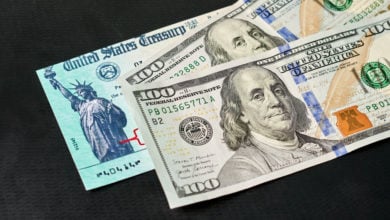The pandemic relief programs implemented in 2020 and 2021 are rapidly coming to an end, plunging many workers deeper into poverty. When COVID first hit, utility companies were prohibited in many cases from disconnecting service to people struggling with accrued bills. At the same time, local and state governments enacted eviction moratoria and protections against foreclosures to keep people housed during the crisis. The federal government paused interest collections on all federal student loans and supplied stimulus checks, albeit at a snail’s pace, to individuals across the country.
However, these protections are coming to an end and people across the country are witnessing waves of foreclosures and shut-off warnings from utility companies if debts are not paid off — all this at a time when the country is facing historic levels of inflation. The total amount of debt across the country owed to utility companies stands at about $22 billion, after reaching a peak at $32 billion last spring. Just in New York, around 1.3 million residential customers are behind on payments.
In the Census Bureau’s Household Pulse Survey conducted earlier this year, 7.1 million people said they were not confident in making rent that month. 4.2 million feared that there was a high chance they would face eviction in the next two months. There was a seven-fold increase in foreclosure starts this January compared with the month before. About 33,000 loans were referred to foreclosure.
The widely-feared wave of evictions — a threat that housing rights activists were raising the alarm about throughout last year — appears to be arriving. This was demonstrated in a Urban Institute landlord survey, which found that 60% of landlords were thinking of initiating eviction proceedings, with one-third of them willing to throw out their tenants after missing only one month’s rent.
The lack of adequate social and financial support over the course of the pandemic, and now the inflation crisis, has left communities in desperate need of relief. It’s time that these temporary relief programs be cemented into permanent social programs, and remove the power of greedy landlords, utility companies and banks to enact widespread suffering in communities across the country.






